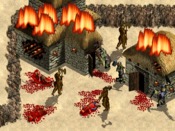Reply to Discussion
If you don't have an account, just leave the password field blank.
I really feel like a discussion about how excess booze abuse can affect future child benefit spending.
For example. quote from Metatarasal in another thread!
And so you shall have it meta. You can take this there if you so desire. But for now...
I am learning about how family violence (and stress) effects the development of the brain of a child who witnesses or is a victim of it. Very interesting stuff, parents think their kids will not remember it if they are young - but - its hotwired in there as part of their development because these kids brains actually develop differently to a child that does not witness abuse and violence and it effects the way they react to the world in general for life because of the "pathways" forged when their brains were developing and experiencing this. Scary stuff!
Why is domestic violence getting so out of hand? It is apparently a huge problem in our society in NZ, how do other countries fare?
Exerpt from: Stress-Violence and brain development
Children who experience chronic stress in infancy use their brains differently later in life. They may later lack the neuronal pathways that would present adult assistance as a possible solution to problems
According to Perry’s research (1996), chronic stress in the first years can cause changes in attention abilities, impulse control, sleep, and fine motor control. Chronic activation of the parts of the brain involved in responding to fear can “wear out” other parts of the brain involved in higher level thinking. As an evolutionary function of the brain, when survival is at stake people do not use their more thoughtful, reflective parts of the brain. Instead, cortisol, adrenalin, and other hormones activate the part of the brain that focuses on choosing a survival strategy: fight or flight, or in very young infants, freeze. As these neural connections are reinforced through usage, they become the predominate pathways the brain uses to assess situations. Every event is perceived as a life-or-death situation. The brain that results from these early experiences may be highly adaptive in abusive or neglectful situations, but it is inadequate for the work of healthy relationships.
Domestic violence more reading
And no I dont have a specific interest in this subject, just find it intriguing how it can apparently effect development of the brain. I also wonder - how do they measure this stuff. Like how do they decide this adult would have been another way with different coping mechanisms without witnessing or being part of violence in their formative years...
For example. quote from Metatarasal in another thread!
And so you shall have it meta. You can take this there if you so desire. But for now...
I am learning about how family violence (and stress) effects the development of the brain of a child who witnesses or is a victim of it. Very interesting stuff, parents think their kids will not remember it if they are young - but - its hotwired in there as part of their development because these kids brains actually develop differently to a child that does not witness abuse and violence and it effects the way they react to the world in general for life because of the "pathways" forged when their brains were developing and experiencing this. Scary stuff!
Why is domestic violence getting so out of hand? It is apparently a huge problem in our society in NZ, how do other countries fare?
Exerpt from: Stress-Violence and brain development
Children who experience chronic stress in infancy use their brains differently later in life. They may later lack the neuronal pathways that would present adult assistance as a possible solution to problems
According to Perry’s research (1996), chronic stress in the first years can cause changes in attention abilities, impulse control, sleep, and fine motor control. Chronic activation of the parts of the brain involved in responding to fear can “wear out” other parts of the brain involved in higher level thinking. As an evolutionary function of the brain, when survival is at stake people do not use their more thoughtful, reflective parts of the brain. Instead, cortisol, adrenalin, and other hormones activate the part of the brain that focuses on choosing a survival strategy: fight or flight, or in very young infants, freeze. As these neural connections are reinforced through usage, they become the predominate pathways the brain uses to assess situations. Every event is perceived as a life-or-death situation. The brain that results from these early experiences may be highly adaptive in abusive or neglectful situations, but it is inadequate for the work of healthy relationships.
Domestic violence more reading
And no I dont have a specific interest in this subject, just find it intriguing how it can apparently effect development of the brain. I also wonder - how do they measure this stuff. Like how do they decide this adult would have been another way with different coping mechanisms without witnessing or being part of violence in their formative years...









